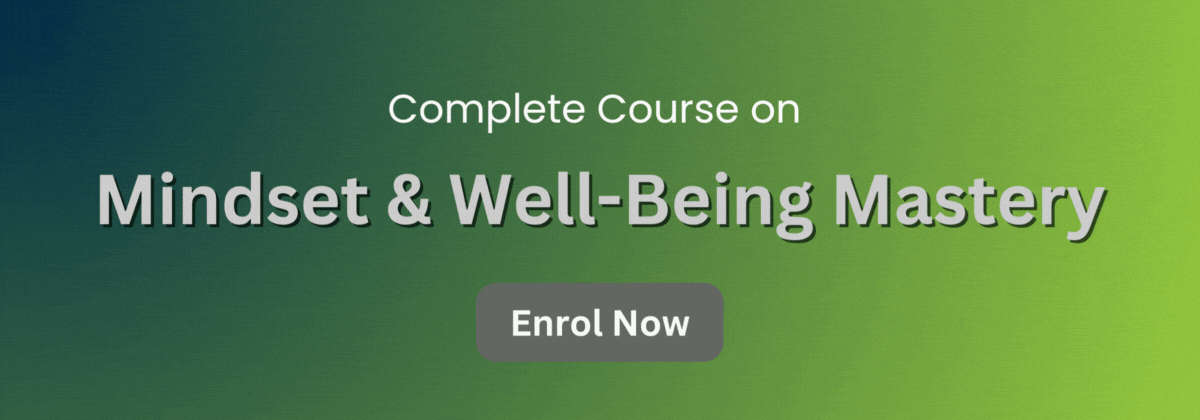
Impact of Journaling on Mental Clarity and Well-Being
5 mins readour minds are often cluttered with competing priorities, emotional tension, and continuous streams of information. Amidst this chaos, one deceptively simple yet profoundly powerful habit stands out—journaling. For centuries, thinkers, leaders, and creatives have used writing as a tool for reflection, clarity, and healing. Now, modern science confirms what many have intuitively known: journaling enhances mental clarity, emotional regulation, and overall well-being.
We will explores the tangible impact of journaling on the mind and body, outlines evidence-backed techniques to integrate it into your daily life, and highlights professional development courses that support a more mindful and resilient lifestyle.
What Is Journaling?
Journaling is the practice of regularly writing down thoughts, feelings, experiences, or observations. It’s not about writing perfectly or for an audience—it’s about capturing the inner dialogue that shapes your day and directing it toward growth, awareness, and peace.
There are many forms of journaling, including:
- Reflective journaling – exploring past experiences and emotions
- Gratitude journaling – listing things you’re thankful for
- Goal-oriented journaling – tracking progress and setting intentions
- Stream-of-consciousness journaling – freewriting whatever comes to mind
Regardless of format, the true power of journaling lies in creating space to process and understand your internal world.
The Mental Benefits of Journaling
1. Improves Mental Clarity
One of the most immediate benefits of journaling is a clearer mind. By transferring thoughts from your brain to paper, you reduce mental clutter and gain perspective.
Benefits include:
- Prioritizing what’s important
- Identifying recurring thought patterns
- Organizing ideas before making decisions
Professionals seeking clarity in both personal and leadership roles can benefit from courses like The Positive Leader, which promotes reflective practices for decision-making and self-leadership.
2. Enhances Emotional Regulation
Writing about your emotions helps to acknowledge, validate, and process them. Rather than reacting impulsively or suppressing feelings, journaling offers a safe, non-judgmental outlet.
Studies have shown that journaling can:
- Reduce symptoms of anxiety and depression
- Increase emotional resilience
- Provide cathartic relief during stressful periods
Participants of the Mindset & Well-Being Mastery for Peak Performance course learn how practices like journaling can help regulate emotional responses and sustain a balanced mindset in high-performance environments.
3. Boosts Self-Awareness
Journaling fosters deep self-reflection, allowing individuals to explore their values, motivations, and triggers. This heightened self-awareness leads to more intentional living and better interpersonal relationships.
Daily prompts such as:
- “What emotion dominated my day and why?”
- “What am I avoiding and how can I address it?”
- “What strengths did I use today?”
—can reveal patterns and guide meaningful personal development.
The The Power of Positive Thinking course complements journaling by helping individuals shift thought patterns toward optimism and self-empowerment.
4. Supports Goal Setting and Motivation
Writing down goals increases the likelihood of achieving them. Journaling allows you to break down big ambitions into manageable steps and track progress over time.
Try this:
Use your journal to:
- Set weekly intentions
- Reflect on obstacles and solutions
- Celebrate small wins
This keeps your motivation high and builds a mindset of progress and accountability.
5. Strengthens Memory and Cognitive Agility
Engaging in reflective writing activates parts of the brain associated with memory consolidation and complex thinking. It’s a workout for your mind, improving:
- Focus
- Comprehension
- Long-term recall
The Mental Agility, Memory, and Speed Reading course enhances these benefits by teaching structured techniques to optimize mental performance in reading, memory, and cognitive flexibility.
The Science Behind Journaling
Research in psychology and neuroscience supports journaling as a form of cognitive restructuring, a technique used to reshape negative thought patterns and enhance emotional resilience.
One landmark study by psychologist James Pennebaker found that people who wrote about emotional experiences for 15–20 minutes a day for four consecutive days:
- Reported better moods and health outcomes
- Experienced fewer stress-related doctor visits
- Had stronger immune responses
Neuroscientific studies also reveal that expressive writing reduces activity in the amygdala (the brain’s fear center) and increases activity in the prefrontal cortex (associated with planning and reasoning), thereby promoting calmer, more logical thinking.
How to Start a Journaling Practice
Getting started with journaling doesn’t require any special tools—just a notebook and a few minutes of uninterrupted time. Here are steps to build a sustainable routine:
1. Set a Time
Mornings or evenings work best. Morning journaling clears your head for the day ahead, while evening journaling promotes reflection and release.
2. Choose a Format
Start with:
- Gratitude list: Write 3–5 things you’re grateful for
- Daily check-in: What’s on your mind right now?
- Prompt-based journaling: Use guided questions
3. Stay Consistent
Aim for at least 5–10 minutes daily. Consistency is more important than length or depth.
4. Keep It Private and Judgment-Free
Journaling is for you. Let go of perfection and allow your thoughts to flow freely.
5. Reflect on Past Entries
Revisiting old journals can provide valuable insight into your growth and recurring themes.
Real-Life Example: Journaling at Work
Imagine a team leader navigating a period of high stress and organizational change. By journaling each morning before work, they:
- Identify emotional triggers related to uncertainty
- Track how leadership decisions affect their confidence
- Recognize a pattern of reactive decision-making
Over time, this practice allows them to approach challenges more calmly, communicate with greater empathy, and make clearer strategic choices—enhancing their leadership effectiveness and team trust.
Such outcomes are reinforced through training like The Positive Leader, which integrates journaling and reflective practices into transformational leadership development.
Journaling for Mental Health and Well-Being
Beyond productivity and leadership, journaling is a core component of emotional self-care. When used intentionally, it can:
- Reduce overwhelm and mental fatigue
- Improve sleep by offloading ruminative thoughts
- Promote forgiveness and healing after conflict
Pairing journaling with other practices like mindfulness, physical movement, and gratitude amplifies these effects.
The Mindset & Well-Being Mastery for Peak Performance course provides a holistic framework for integrating journaling into a well-being routine that supports long-term personal and professional success.
The Role of Journaling in Positive Thinking
Our thoughts shape our reality—and journaling helps us shape our thoughts. Writing down positive experiences, affirmations, or lessons learned fosters an optimistic mindset and buffers against negative thinking.
Prompt ideas for positive thinking:
- “What went well today and why?”
- “What did I learn from a challenge I faced today?”
- “What strengths did I use or develop this week?”
The The Power of Positive Thinking course complements this approach by helping individuals rewire thought patterns and cultivate inner confidence through structured mental techniques.
Integrating Journaling into Leadership and Team Culture
While journaling is often seen as a private activity, its benefits can extend to the workplace:
- Team leaders can use reflective journals to improve emotional intelligence
- Project managers can document lessons learned for continuous improvement
- HR professionals can encourage staff to keep well-being journals for stress management
Organizations that value psychological safety, resilience, and thoughtful leadership are increasingly incorporating reflective writing into training programs and wellness initiatives.
Write Your Way to Clarity and Calm
Journaling is more than a writing habit it’s a mindset practice that promotes clarity, self-awareness, and emotional strength. Whether you’re aiming to reduce stress, increase focus, or become a more intentional leader, journaling offers a simple yet powerful path forward.
With consistent effort, journaling becomes a trusted companion helping you navigate change, deepen self-understanding, and lead with presence and purpose.
Copex Training offers a range of courses that integrate journaling, mindset development, and emotional intelligence into personal and professional growth, including:
- Mindset & Well-Being Mastery for Peak Performance Course
- The Positive Leader Course
- The Power of Positive Thinking Course
- Mental Agility, Memory and Speed Reading
Start journaling today—and discover how a few words a day can transform your inner world and outer performance.





